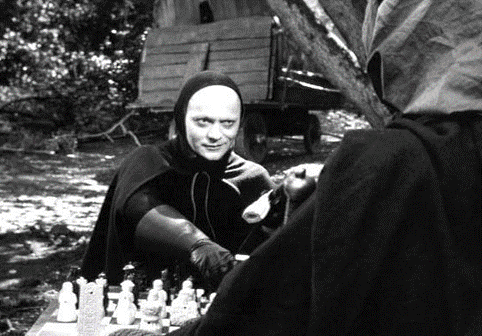 |
| DETAIL, THE ROMANS OF THE DECADENCE, 1847 |
It's quiz time once again boys and girls. The quote below is a bit lengthy, but I'd hope you agree it's worth it. I've removed a couple of words that would help you to identify the writer and the context of the quote because I think that's one of the most interesting things about this excerpt. As you read it, consider what it says not only about our culture today, but also the world of entertainment, television in particular. As usual, I'll identify the speaker and the context at the end.
We live today in a world that is as deeply devoted to material things as was [theirs]. For example, [they] were obsessed by health, diet, and exercise. They spent more time in baths and health clubs than in churches, temples, libraries, and law courts. They were devoted to consumption. A man could make a reputation by spending more than his neighbor, even if he had to borrow the money to do it. And if he never paid back his creditors, he was honored for having made a noble attempt to cut a fine figure in the world.
They were excited by travel, news, and entertainment. The most important cultural productions [...], from books to extravaganzas in the theaters and circuses that occupied a central place in every [...] city or town, dealt with amusing fictions about faraway peoples and with a fantasy peace and happiness that did not exist in their real lives. They were fascinated by fame and did not care how it was acquired. If you were famous enough, the fact that you might be a rascal or worse was ignored or forgiven.
[They] cared most about success, which they interpreted as being ahead for today, and let tomorrow take care of itself. They were proud, greedy, and vain. In short, they were much like ourselves.
A pretty good description of the world today, don't you think?
The only difference is that it was written in 1991, and it was written about a people living in the fourth century—the Romans, near the end of the empire. The late Roman world, indeed, was quite like ours.
And the author? If you're a classic television fan, you'll probably recognize the name of the late Charles Van Doren. Yes, the same Charles Van Doren of the quiz show scandals in the late 1950s. Following his disgrace, Van Doren went into a self-imposed public exile, eventually returning to a life of writing (at first under a pseudonym) and becoming an editor at Encyclopaedia Britannica. He authored a number of philosophical and scholastic books (some with his friend Mortimer Adler), the best known of which is probably the one from which this excerpt came, A History of Knowledge.
The relationship of this to television? Well, I can't imagine a better description of the celebrity-infused culture of TMZ, the world of "reality" programming that has little relation to reality, knows almost no bounds, and seems to consist primarily of people who've become famous for being famous. Can you say "Kardashians"? "Real Housewives"? And if Van Doren's description of reality stars and viewers hits the mark, he's no less accurate in describing the world of consumption in which television dwells, not only in how advertising dominates the medium, but in how so much of the programming—not only reality but scripted—glorifies such consumption.
If there's anything optimistic to be taken from this, it's in how it shows that there is truly nothing new under the sun. Van Doren obviously felt that this series of paragraphs were fairly descriptive of the cultural world of the 1980s and '90s, even as it was written about a society that existed some 1500 years before that, and could doubtlessly be used similarly to describe countless societies and cultures in between.
On the other hand, we have to recall that the Roman Empire crumbled - not at the hands of a military enemy, but from internal decay. The historian Arnold Toynbee, himself a writer in the pages of TV Guide, posited that "the Roman Empire itself was a rotten system from its inception, and that the entire Imperial era was one of steady decay of institutions founded in Republican times." I'm afraid that if you're looking for reassuring sentiments in that statement, you're going to have to look elsewhere.
The id of Sigmund Freud has been described as the devil on the shoulder of the super-ego, an inflated sense of self-worth, "a mass of instinctive drives and impulses [that] needs immediate satisfaction." It is to the id that television thus appeals, in its ability to satisfy the insatiable desire for fame that consumes so many of its participants, and its ability to transmit that to viewers who consume it voraciously and live it vicariously. Something, in fact, that Charles Van Doren himself fell victim to at the pivotal moment in his life.
All this is not to lay the blame solely at the feet of television. As regular readers know, I've always felt that television as a medium is morally neutral—it's how you use the technology that counts—although I'll admit that I've been wavering in that belief over the last few years. (A subject for a future article, perhaps?) My fear is that the technology is not being used very well, nor has it been for some time, but even there one can suggest that it is at least as much of a reflection of out culture as it is the source of our dilemmas. And while it's true that television does satisfy that voracious appetite for what Van Doren called "amusing fictions about faraway peoples," but the people and the appetite had to exist in the first place - television merely exploited it and expanded it, but it has been a part of the human condition since Original Sin. Sic semper erat, et sic semper erit: Thus has it always been, thus shall it ever be. TV




















